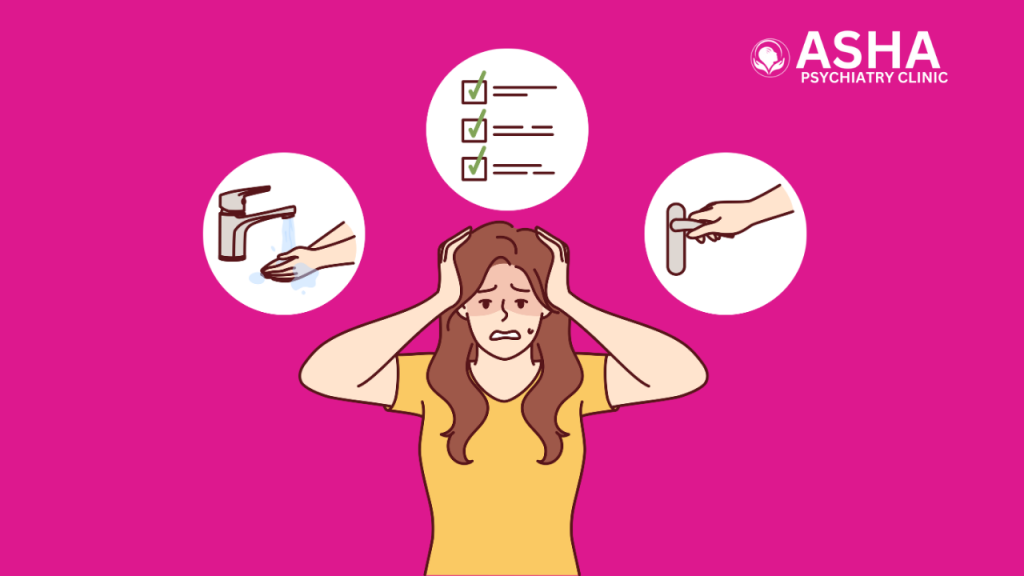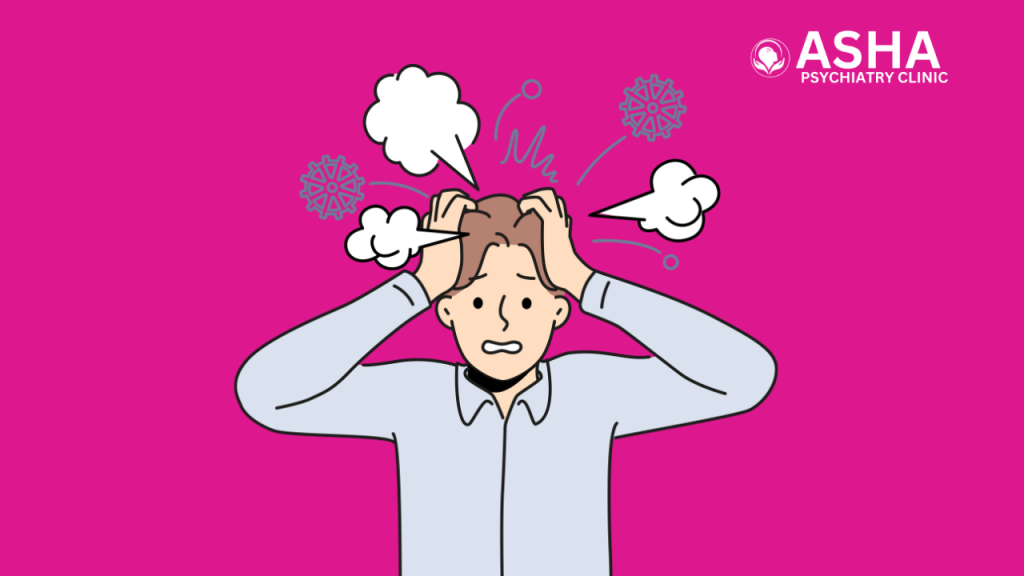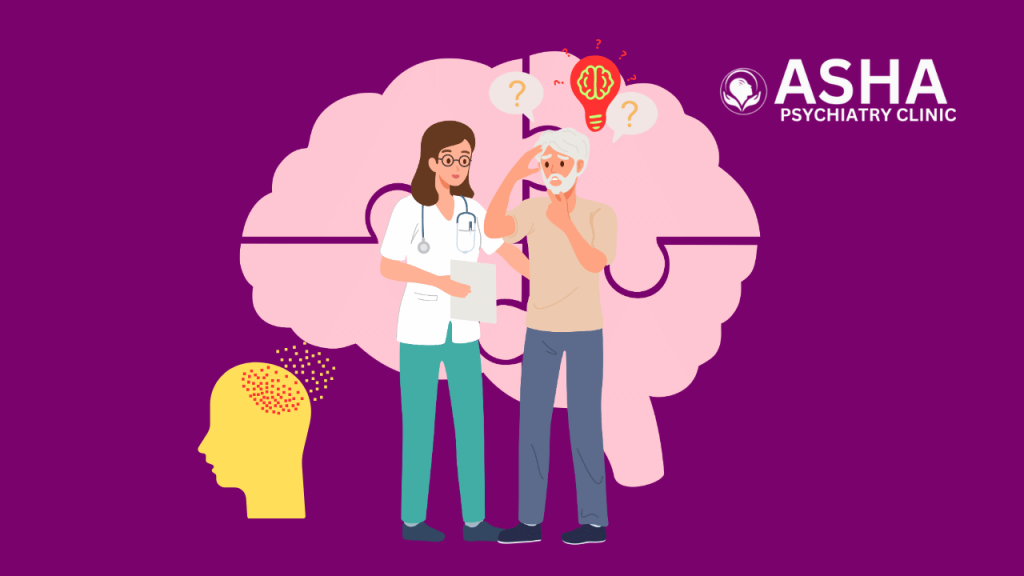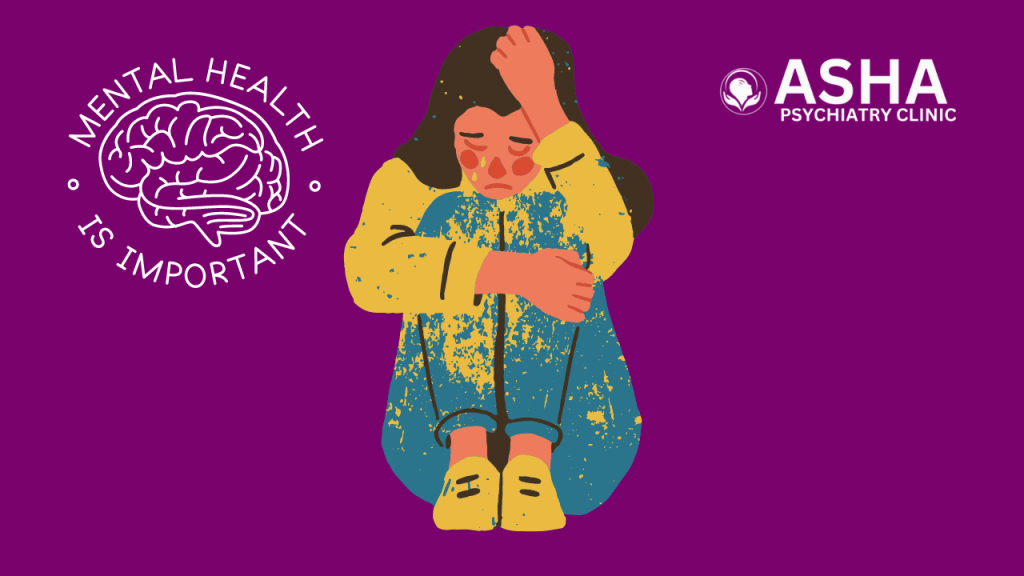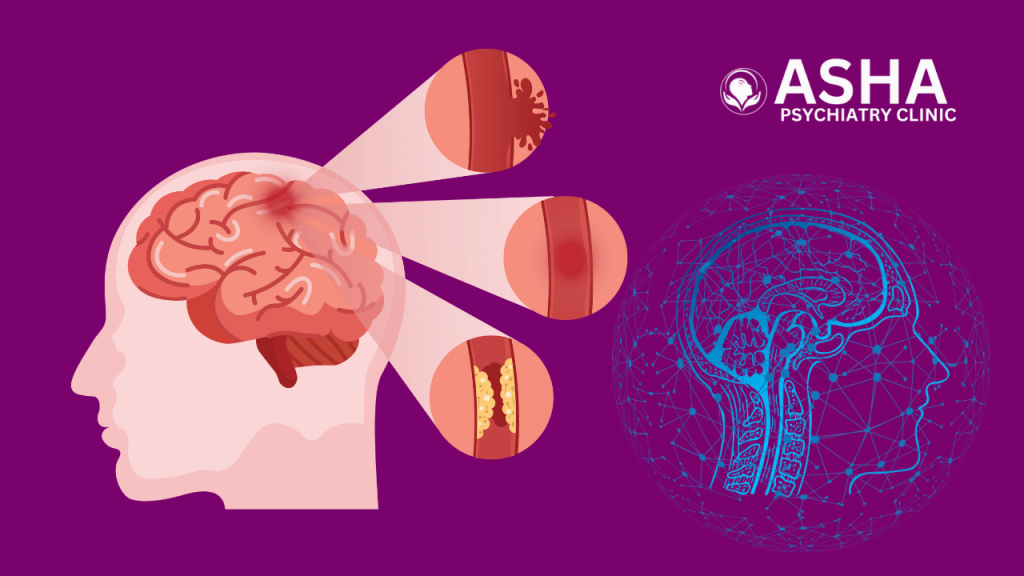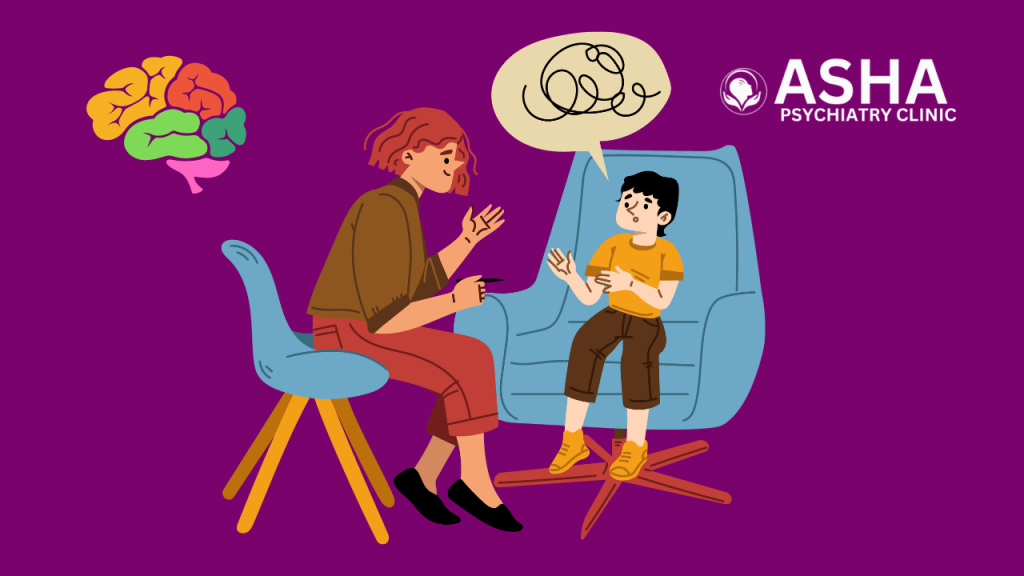Brain fog is a term used to describe a state of mental confusion, lack of motivation, forgetfulness, lack of focus, and difficulty in processing information. It can be frustrating, especially when it affects daily tasks, work performance, and overall well-being. While it’s not a medical condition, brain fog is often a symptom of underlying issues such as stress, poor sleep, or an unhealthy lifestyle.
In this article, We at Asha Psychiatry Clinic have suggested practical strategies to prevent and manage brain fog effectively designed and provided by Dr. Srikanth Bandari, Consultant and top-rated and best psychiatrist in Hyderabad.
What is Brain Fog
Brain fog refers to a state of mental confusion, difficulty concentrating, and lack of clarity. It often feels like a cloud is obstructing clear thinking, making it hard to focus, process information, or recall details. While it’s not a medical condition, brain fog can be a symptom of various underlying issues such as stress, lack of sleep, poor nutrition, or dehydration.
It may also be associated with chronic illnesses, hormonal imbalances, or medications. People experiencing brain fog may struggle with productivity, memory, and decision-making, which can impact their daily activities and overall well-being.
Symptoms of Brain Fog
- Brain fog symptoms include difficulty concentrating, forgetfulness, and mental fatigue.
- People experiencing brain fog often feel mentally sluggish, struggling to focus on tasks or recall information.
- They may also have trouble organizing thoughts or finding the right words during conversations.
- Decision-making becomes harder, and completing everyday tasks can feel overwhelming.
- Other common symptoms include confusion, a sense of disconnection, and feeling “cloudy” or “hazy” mentally.
- Physical symptoms such as headaches, low energy, and trouble sleeping can accompany brain fog, further affecting cognitive performance and overall clarity of thought.
- These symptoms can significantly reduce productivity and quality of life.
How to Prevent Brain Fog – Tips by Dr. Srikanth Bandari, Psychiatrist
To prevent brain fog issues everyone can follow the listed tips or recommendations by Dr. Srikanth Bandari suggested after proper research.
1. Prioritize Quality Sleep
- Sleep is essential for cognitive function, memory consolidation, and emotional balance. Dr. Bandari stresses that a lack of sleep or poor-quality rest can significantly contribute to brain fog. Aim for 7-9 hours of uninterrupted sleep each night.
- Develop a sleep routine by going to bed and waking up at the same time daily, and create a calming bedtime environment free from distractions like screens or bright lights.
- sleeping early and waking early can help.
2. avoid excess stimulants
- Dehydration can cause sluggishness, impaired focus, and difficulty thinking clearly. Dr. Bandari advises drinking enough water throughout the day to maintain optimal brain function.
- Avoid excessive caffeine or sugary drinks, which can lead to energy crashes and exacerbate mental fogginess.
3. Manage Stress Levels
- Chronic stress disrupts cognitive processes, leading to difficulty concentrating and increased forgetfulness. To combat this, Dr. Bandari recommends practicing relaxation techniques such as deep breathing, meditation, and yoga to calm the mind and reduce stress hormones.
- Taking regular breaks, setting realistic goals, and creating time for hobbies and relaxation can also alleviate the mental load that contributes to brain fog.
4. Maintain a Balanced Diet
- The brain requires proper nutrition to function optimally. Dr. Bandari suggests a diet rich in omega-3 fatty acids, antioxidants, vitamins, and minerals to support cognitive health. Foods such as fatty fish, leafy greens, berries, and nuts are excellent for brain function.
- Avoid processed foods, excessive sugar, and refined carbohydrates, which can cause energy crashes and mental sluggishness.
5. Stay Mentally Active
- Just as the body needs exercise to stay fit, the brain benefits from mental stimulation. Engage in activities that challenge your cognitive abilities, such as reading, puzzles, or learning new skills.
- Dr. Bandari emphasizes that mental exercises like brain games, memory exercises, or even learning a new language can help sharpen focus and prevent brain fog.
6. Exercise Regularly
- Physical activity boosts blood flow to the brain, enhances mood, and reduces mental fatigue. Dr. Bandari advises incorporating regular exercise, even light activities like walking or stretching, into your routine to keep your brain sharp.
- Exercise also releases endorphins, which improve mental clarity and reduce feelings of stress and anxiety.
7. Limit Screen Time
- Excessive screen time, especially without breaks, can lead to mental exhaustion and brain fog. Dr. Bandari recommends taking regular breaks during work or screen use, following the 20-20-20 rule: every 20 minutes, look at something 20 feet away for at least 20 seconds.
- Reducing screen time before bed can also improve sleep quality and help prevent the mental fatigue associated with brain fog.
8. Avoid Multitasking
- Trying to juggle multiple tasks at once can overwhelm the brain, leading to reduced focus and mental clarity. Dr. Bandari advises focusing on one task at a time, as this enhances concentration and productivity while reducing the risk of brain fog.
- Using organizational tools such as lists or time management apps can help prioritize tasks and prevent mental overload.
9. Address Underlying Health Issues
- Brain fog can sometimes be linked to underlying medical conditions such as thyroid issues, hormonal imbalances, or vitamin deficiencies. Dr. Bandari highlights the importance of addressing these issues with the help of a healthcare provider.
- Regular health checkups and blood tests can identify any deficiencies or imbalances that may be contributing to cognitive symptoms.
10. Stay Connected Socially
- Social interaction helps stimulate the brain and improve mental clarity. Dr. Srikanth Bandari encourages maintaining strong social connections, as they provide emotional support and reduce stress, both of which are important for preventing brain fog.
- Engaging in meaningful conversations, group activities, or simply spending quality time with loved ones can uplift your mood and improve cognitive function.
Final Thoughts
Brain fog is a manageable condition that can be prevented by making mindful lifestyle changes. By focusing on good sleep hygiene, stress management, a nutritious diet, and regular physical and mental exercise, you can sharpen your cognitive abilities and reduce the likelihood of experiencing brain fog.
Dr. Srikanth Bandari’s recommendations offer practical solutions to help maintain mental clarity and achieve long-term cognitive health.
If you have any queries feel free to contact Asha Psychiatry Clinic, Lingampally. Hyderabad.

